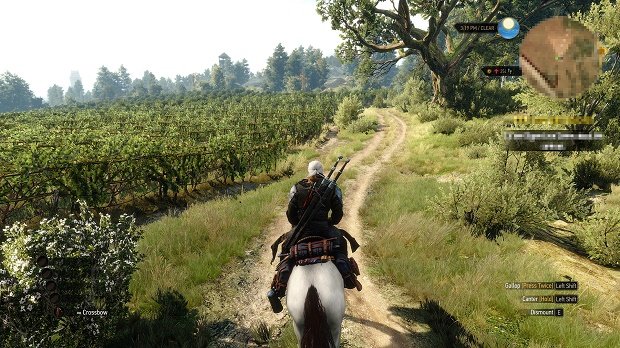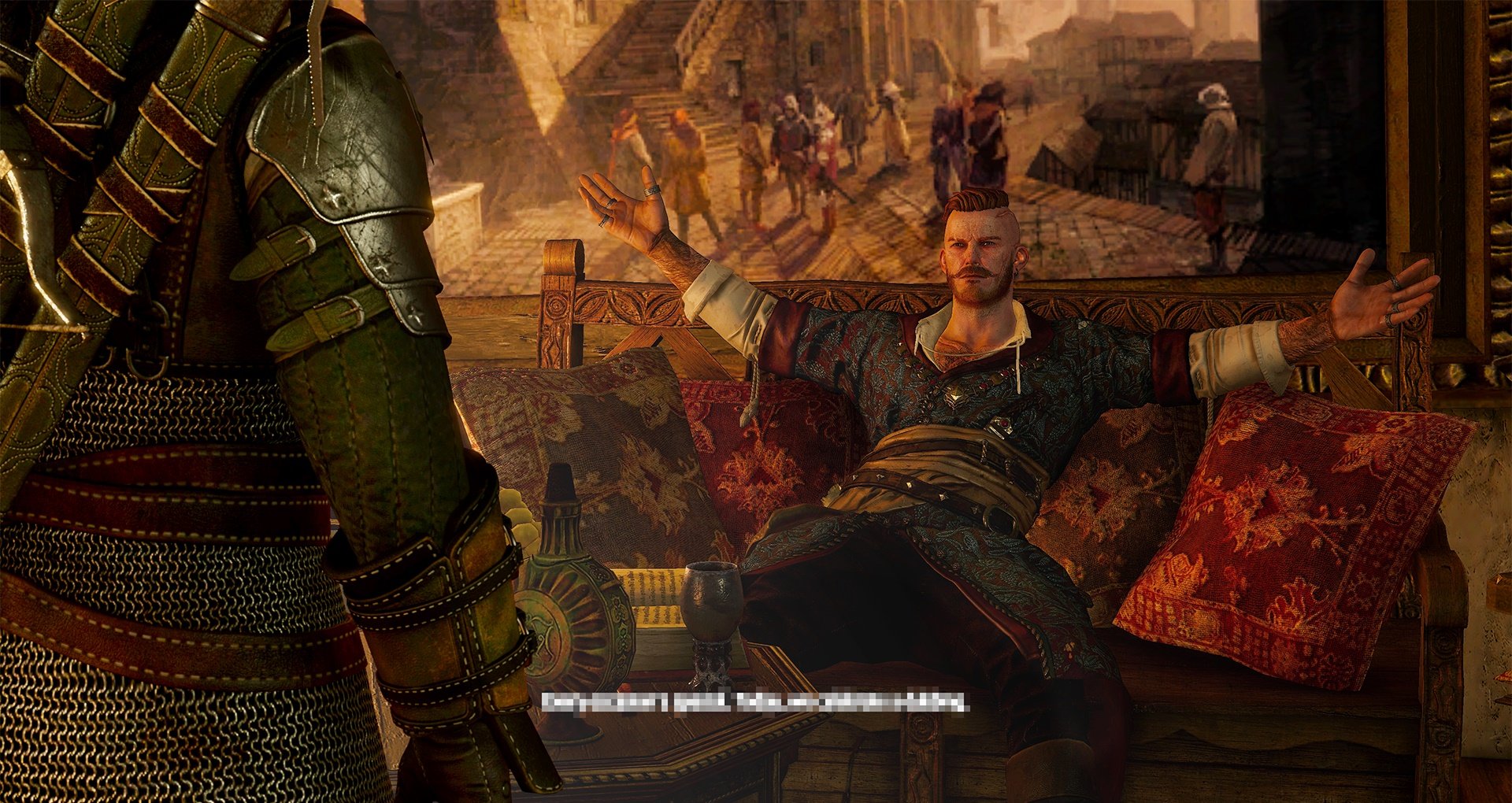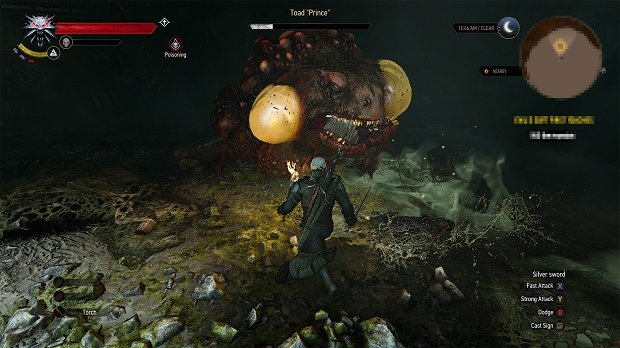GamesRadar+ Verdict
Hearts of Stone may not make any significant improvements to The Witcher 3's core gameplay, but it succeeds largely on the quality of its engrossing narrative.
Pros
- +
An excellent side story filled with tons of great moments
- +
Organically adds new locations and enemies to the continent of Velen
- +
Runecrafting adds another layer to customization
Cons
- -
Boss fights are exercises in frustration
- -
Doesn't add any significant content to rest of the world
- -
General Witcher 3 jankiness remains
Why you can trust GamesRadar+
The Witcher 3 is at its best when it acts as a short story generator for its hero-slash-ronin, Geralt of Rivia. He wanders from town to town, taking on odd jobs for coin, often finding himself with more trouble than he bargained for. It's in these moments, when The Witcher explores each of the world's inhabitants and how they interact with each other, that the game truly shines. That's what the expansion Hearts of Stone is: a chance to step back into the world-weary monster slayer's shoes to experience one of the best vignettes the series has told thus far.
Hearts of Stone begins like so many of The Witcher's sidequests: with a seemingly routine monster contract picked up at one of Velen's many notice boards. Of course, things aren't quite what they seem, and completing this quest sends you on a one-way trip to the hangman's noose. You end up face-to-face with the mysteriously powerful Gaunter O'Dimm - a man you might recognize from his brief appearance near the beginning of the main campaign - and in exchange for your rescue, you're required to complete three impossible tasks for Olgierd von Everec, an immortal bandit captain who has also made a pact with the enigmatic O'Dimm. The story runs a fairly predictable course, putting you through three trials and then a final confrontation, but the characters are, in typical Witcher fashion, fleshed-out well and their motivations are rarely as black and white as you think they are.

While the path the story runs is somewhat cliche, the individual moments that make up that story are anything but, and each of Olgierd's three tasks form the backbone of some of the most interesting tales the series has ever told. One such request forces you to find the ghost of Olgierd's dead brother and take him out for one last night on the town - which involves attending a wedding with one of Geralt's old girlfriends while he possesses you. After spending hours playing as a perpetual stick-in-the-mud, this scene provides a chance for Geralt to puff his chest out, let loose, and finally have a bit of fun. Another task requires you to pull off an honest-to-God heist, complete with Ocean's Eleven-style recruiting and planning sequences. Still another thrusts you inside the world of an impressionist painting, where all of the colors blur together, not unlike Van Gogh's "Starry Night". I found myself constantly surprised and amazed by the places Hearts of Stone's ten-hour-long story took me. The expansion's tale doesn't quite have the same weight or effect on the world that Wild Hunt's narrative has, but it's so interesting and well-written that it still feels absolutely essential, even as a side story.
In addition to the highly-entertaining main quest, Hearts of Stone seamlessly adds a few new locations, side quests, and gameplay wrinkles to the main game that are all worth exploring. The northern part of the continent of Velen gets a whole new expanse filled with towns, caves, and forests, and they're added so organically that you'll swear they were there the whole time. It is unfortunate that the frigid islands of Skellige didn't get the same treatment. There are a few new enemies to fight, too (mostly in the form of giant boars and spiders), and they're sprinkled liberally throughout the expansion.

You'll also come across a few citizens from the distant land of Ofir, who offer their runecrafting services to you after you complete a few tasks for them. Runecrafting replaces a weapon or piece of armor's slotted glyphs with an assortment of persistent effects - like increasing vitality restoration from food by 100% but making everything you eat taste like pierogis (I'll have to take Geralt's word for it). It doesn't fundamentally change how you play the game, but it does provide another interesting option to take, should you tire of the game's typical assortment of upgrades.
In fact, it should be said that the expansion doesn't really significantly alter the core Witcher 3 experience, rather opting to insert more content to the base that's already there. Combat is still kind of clumsy and awkward, and Hearts of Stone's boss fights are a low point of an otherwise stellar experience. There's no finesse to these encounters - instead, you'll likely die a few times (suffering through long load times) until you figure out the boss' patterns and slowly whittle their health away. And the general Witcher 3 level of jankiness permeates the entire experience. Don't get me wrong - The Witcher 3 in October is a far more stable experience than it was back in May, but the frame rate still stutters a bit depending on where you are, and I don't know what sorcery possesses Geralt's medallion, but it won't stop hopping up and down on his chest.

It's a testament to how good The Witcher's world, characters, and stories are that all of these issues - especially the combat, which is a core pillar of its gameplay - are worth dealing with to experience. While Hearts of Stone doesn't fix Wild Hunt's biggest problems, it provides a hell of a reason to hop back into this perpetual short story machine. It's the video game equivalent of a novella, fleshing out a little bit more of this fascinating world and the people who inhabit it by providing more of the superb storytelling we've come to expect from CD Projekt Red.
This game was reviewed on PS4.
More info
| Description | This expansion to The Witcher 3 adds ten hours of story content, new enemies to fight, and new places to explore. |
| Platform | "PS4","Xbox One","PC" |
| Release date | 1 January 1970 (US), 1 January 1970 (UK) |




